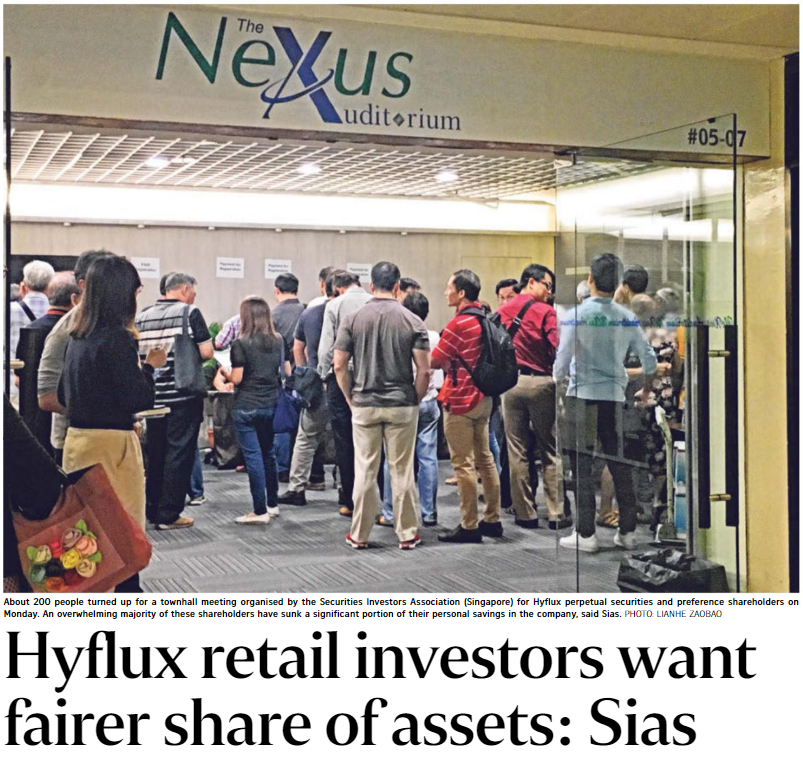The Lure of the Golden Ticket
08 March 2019

In Roald Dahl’s popular children’s book, Charlie and the Chocolate Factory, young Charlie Bucket dreams about finding one of the five special Golden Tickets hidden amongst millions of chocolate bars. Each child who finds a Golden Ticket gets to tour the legendary and highly secretive Willy Wonka’s Chocolate Factory, becoming an instant celebrity and media sensation.
This story is fiction, but its characters’ feverish attempts to discover those elusive tickets – including by buying thousands of chocolate bars in bulk – echoes the way many people chase after those one-in-several-million opportunities that would bring them instant fame and fortune.
The same attitude exists with investing. Investing is often seen like a quest, with investors scrambling over each other to find the secret stock or investment product that would be their golden ticket to instant riches. Financial media is only too happy to feed this frenzy, churning out articles on what to buy. “Have I got some stock tips for you!” chimes a well-known financial TV personality, laying out all the under-the-radar stocks supposedly owned by famous hedge funds. Bloomberg “experts” rush to suggest where you could invest $1 million right now – in the winners from the China-US trade war, the Russian and Vietnam stock market, New Zealand wines, and food production.
Following these tips would result in a dangerously concentrated portfolio. There is little, if any, consideration of the losses one could suffer. Yet many investors still lap up such advice, because it plays to their poor understanding of how markets work. It also reinforces the fantasy that all they have to do to get rich is discover that treasure map to the pot of gold.
But this sort of investing is not much different from gambling. It is also impossible to assign any kind of sustainable long-term return to such an ad hoc strategy, such that you cannot count on it to meet your long-term financial goals. Anything could happen, and that sort of uncertainty is no foundation to build any kind of financial security.
What’s far more common is that when investors are constantly looking for the “golden ticket”, they end up taking unnecessary risks by committing their entire savings to a handful of stocks, investment products or sectors.
The recent Hyflux bankruptcy highlights what can happen when investors do that, even with a seemingly-safe instrument like bonds. The news reported that investors would likely get back 10 to 25 cents for every dollar invested in Hyflux – which led to many of them signing a petition to seek more money from the company. Many of them had sunk significant portions of their savings into Hyflux.

What happened was truly unfortunate. But we should not miss the important lesson here: which is that we should not put all or even most of our eggs into one basket. It is likely that most of those investors had invested in Hyflux because it was a well-known, up-and-coming local company that had been promoted as the poster-child of Singapore’s desire to be water independent. Of course, many would have been attracted by the 6% coupon on their preference shares, which is significantly higher than that of other blue-chip companies. While that should have alerted them to the higher risk involved, most probably did not think it likely that anything would go wrong… until it did.
This is precisely why diversification is so important for reducing risk and increasing flexibility. The concept of diversification was introduced in 1952 by Nobel Laureate Harry Markowitz and James Tobin, and it remains relevant today.
Trying to find hidden bargains and undiscovered unicorn stocks can be fun, but it is not an investment strategy. If you really want the excitement and potential satisfaction of doing so, make sure it forms only a tiny portion (less than 10%) of your investible assets. Don’t fool around with the core of your life savings. Sound investing starts with identifying risks worth taking (especially vis-a-vis your goals) and minimising the risks that don’t come with an expected reward, such as putting it all on a friend’s tip or after watching the news.
Sure, you could find the golden ticket. After all, somebody wins the Powerball, Toto, or lottery every other week. But what are the odds of that happening to you? Instead, the odds are far higher that you would just fritter away precious time and money.
Don’t confuse gambling with investing. Always remember – the golden ticket is only fiction.
#
If you have found this article useful and would like to schedule a complimentary session with one of our advisers, you can click the button below or email us at customercare@gyc.com.sg.
IMPORTANT NOTES: All rights reserved. The above article or post is strictly for information purposes and should not be construed as an offer or solicitation to deal in any product offered by GYC Financial Advisory. The above information or any portion thereof should not be reproduced, published, or used in any manner without the prior written consent of GYC. You may forward or share the link to the article or post to other persons using the share buttons above. Any projections, simulations or other forward-looking statements regarding future events or performance of the financial markets are not necessarily indicative of, and may differ from, actual events or results. Neither is past performance necessarily indicative of future performance. All forms of trading and investments carry risks, including losing your investment capital. You may wish to seek advice from a financial adviser before making a commitment to invest in any investment product. In the event you choose not to seek advice from a financial adviser, you should consider whether the investment product is suitable for you. Accordingly, neither GYC nor any of our directors, employees or Representatives can accept any liability whatsoever for any loss, whether direct or indirect, or consequential loss, that may arise from the use of information or opinions provided.









